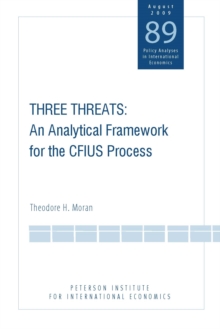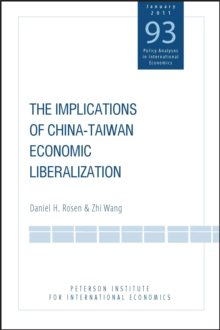
China's Strategy to Secure Natural Resources : Risks, Dangers, and Opportunities PDF
by Theodore H. Moran
Part of the Policy Analyses in International Economics series
Description
The rapid emergence of China as a major industrial power poses a complex challenge for global resource markets. Backed by the Chinese government, Chinese companies have been acquiring equity stakes in natural resource companies, extending loans to mining and petroleum investors, and writing long-term procurement contracts for oil and minerals. These activities have aroused concern that China might be "locking up" natural resource supplies, gaining "preferential access" to available output, and extending "control" over the world's extractive industries. On the demand side, Chinese appetite for vast amounts of energy and minerals puts tremendous strain on the international supply system. On the supply side, Chinese efforts to procure raw materials can either exacerbate or help solve the problems of high demand.
Evidence from the 16 largest Chinese natural resource procurement arrangements shows that Chinese efforts-like Japanese deployments of capital and purchase agreements in the late 1970s through the 1980s-fall predominantly into categories that help expand, diversify, and make more competitive the global supplier system. Investigation of smaller projects indicates the 16 largest do not suffer from selection bias. However, Chinese attempts to exercise control over mining of rare earth elements may constitute a significant exception. The investigative focus of this analysis is deliberately narrow and precise, assessing the impact of Chinese resource procurement on the structure of the global supply base. The broader policy discussion in the concluding chapter raises other separate important issues, including the impact of Chinese resource procurement on rogue states, on authoritarian leadership, on civil wars, on corrupt payments and the deterioration of governance standards, and on environmental damage. Such effects may make patterns of Chinese resource procurement objectionable, on grounds quite apart from the debate about possible "control" of access on the part of China and Chinese companies.
Information
-
Download - Immediately Available
- Format:PDF
- Publisher:Peterson Institute for International Economics
- Publication Date:15/07/2010
- Category:
- ISBN:9780881325539
Information
-
Download - Immediately Available
- Format:PDF
- Publisher:Peterson Institute for International Economics
- Publication Date:15/07/2010
- Category:
- ISBN:9780881325539










